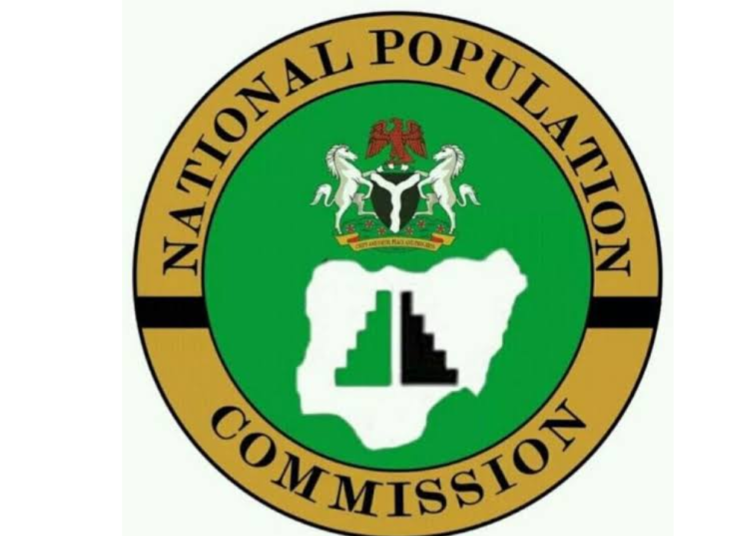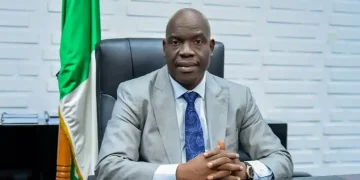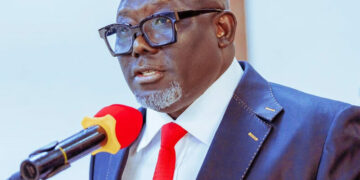The National Population Commission (NPC) has revealed that over 60 percent of Nigeria’s population is under the age of 30, positioning the country at a pivotal moment in its demographic evolution.
The data, released in commemoration of World Population Day 2025, underscores both the promise and pressure facing Africa’s most populous nation.
Speaking at a press conference in Abuja, the NPC Chairman, Hon Nasir Isa Kwarra, described Nigeria’s youth-dominated population as a potential “engine of national development,” but warned that this demographic advantage could quickly become a liability if urgent steps are not taken to invest in young people’s health, education, and economic opportunities.
“We are at a crossroads. Our youthful and vibrant population presents immense opportunity for national transformation, but structural barriers such as limited access to education, poor healthcare, unemployment, and gender-based discrimination continue to hinder their potential,” Kwarra stated.
This year’s global theme, “Empowering Young People to Create the Families They Want in a Fair and Hopeful World,” focuses on reproductive rights and youth empowerment in the face of mounting socio-economic pressures.
Highlighting the importance of choice and agency, the NPC called on all stakeholders—government, private sector, development partners, and civil society—to prioritize youth-friendly policies and ensure young Nigerians have the freedom and resources to make informed decisions about their lives and families.
To address these challenges, the NPC outlined three core strategies central to its national demographic agenda: Revamping the Civil Registration and Vital Statistics (CRVS) System
The Commission is working with federal ministries and partners to digitalize birth and death registration processes.
According to Kwarra, ensuring that every child is counted from birth is critical to accessing health, education, and social protection services.
“A birth certificate is more than a document—it’s a child’s first recognition by the state,” he noted.
Kwarra praised the role of the media in informing and educating the public, urging continued support in building a “population-literate society.”
“Empowering our youth is not optional—it is an existential imperative. Let us commit to building a Nigeria where every young person can dream, decide, and determine their future,” Kwarra said.
Conducting Nigeria’s First Digital Population and Housing Census
The upcoming census, slated to be Nigeria’s first fully digital enumeration, will collect disaggregated data on age, gender, education, housing, and service access—key metrics for youth-centered policy planning. The federal government has pledged substantial financial and institutional support to ensure the success of this transformative effort.
Launching a National Geospatial Data Repository Integrating CRVS and census data with advanced geographic mapping, the repository will allow policymakers to identify underserved areas, monitor service delivery, and design more effective youth-targeted interventions.
Also speaking, Deputy Representative and Officer-in-Charge of the United Nations Population Fund (UNFPA) Nigeria, Mr Koessan Kuawu emphasized that the real crisis is not fertility, but the lack of reproductive agency.
“Many young Nigerians want to start families, but they are held back by economic hardship, lack of access to sexual and reproductive health services, and societal expectations,” Kuawu said.
Citing the latest Nigeria Demographic and Health Survey, Kuawu noted that: Among youth aged 15–19, only 15% of demand for family planning is met using modern methods.
Among youth aged 20–24, that figure rises to just 30.5%. Unmet need for family planning among both groups remains alarmingly high.
UNFPA called for: Increased investment in job creation and affordable living for young people; Comprehensive sexuality education; Improved access to youth-friendly reproductive health services; Strengthened intergenerational dialogue to promote inclusion and trust.
Both NPC and UNFPA emphasized the need for stronger collaboration between the government and development partners to respond to Nigeria’s shifting demographic realities.
Chair of the Management Committee of the Association for the Advancement of Family Planning (AAFP), Dr Ejike Orji revealed significant financial investments by the Nigerian government.
According to him, the government invested $4 million last year and has committed over N5.7 billion (about $3.7 million) this year through PIVAC, a private initiative aimed at local procurement of family planning commodities.
“These efforts will unlock an additional $2 million from UNFPA and potentially more through global funding programs like PAC. This collaboration helps strengthen the supply chain and sustainability of family planning in Nigeria,” Orji explained.
World Population Day activities across the country will include youth consultations, community forums, and media outreach aimed at raising awareness and driving action.
As Nigeria’s population crosses the 230 million mark, experts say the country’s future will largely depend on how well it invests in its young people today.





